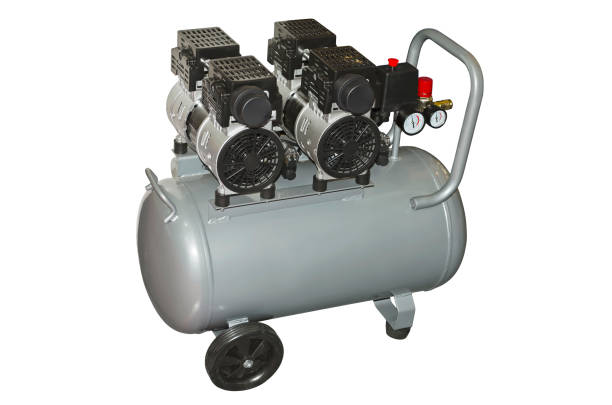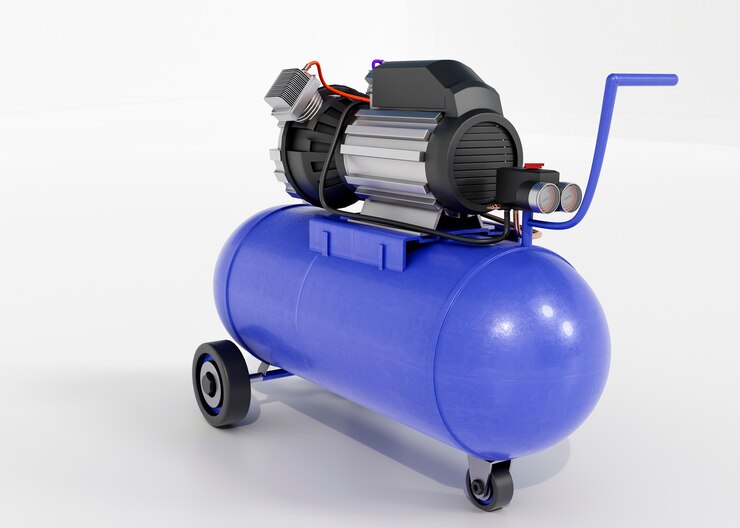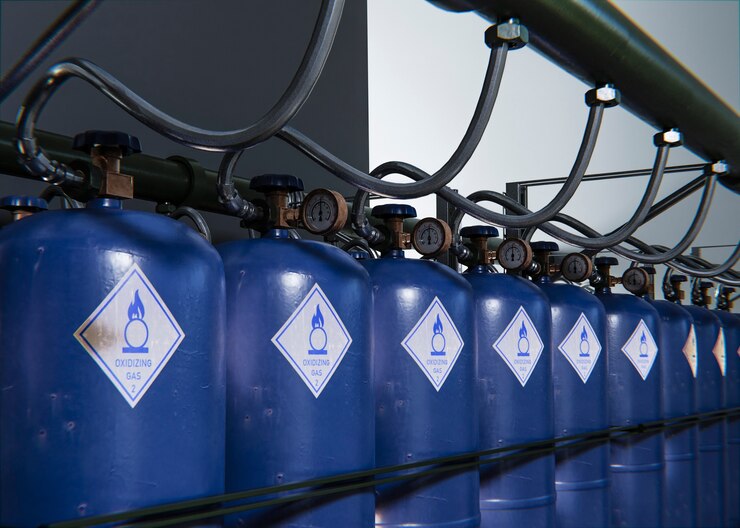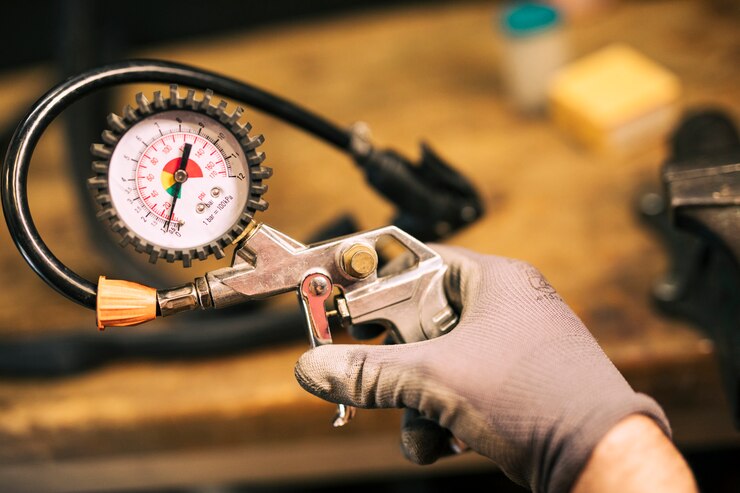The Ultimate Guide to Air Screw Compressor: Everything You Need to Know
The Industrial Powerhouse: An All-Inclusive Guide to Air Screw Compressors
Numerous industries rely on air screw compressors as their workhorses because they offer a dependable and effective source of compressed air for a variety of uses. Air screw compressor provides the performance you require, whether you’re using them to run complex machinery in a manufacturing plant, power machinery on a construction site, or maintain constant pressure in a food and beverage establishment.
This thorough guide delves deeply into the world of air compressors, examining the various kinds, uses, advantages, parts, and aspects to take into account when selecting the best one for your requirements. You will have a thorough grasp of these strong equipment and how they can enhance your operations by the time you finish.
Knowledge of Air Screw Compressors: Uses
Positive displacement compressors are the group that includes air compressors. They work using two male and female intermeshing helical rotors that rotate inside a sealed chamber, trapping and compressing air. This design has several benefits, such as:
- Constant flow rate:
Air screw compressor produces a smooth, constant flow of compressed air, in contrast to piston compressors that supply air in pulses.
- High efficiency:
The minimal loss of energy during the compression process is achieved by the effective design of air screw compressors.
- Durability and dependability:
These compressors have a long lifespan and dependable operation because of their sturdy design and few moving parts.
Types of air screw compressors:
These compressors come in two main varieties:
- Oil lubrication:
The rotors of these compressors are greased with oil to minimize wear and friction. Although they are renowned for being inexpensive and long-lasting, they could need additional upkeep because they need to have their filters and oils changed.
- Oil-free:
The possibility of oil contamination in the compressed air stream is removed with oil-free air screw compressors. This makes them perfect for uses where purity is crucial, such as in the food and beverage, pharmaceutical, and electronics industries.
Powering Diverse Industries: The Widespread Applications of Air Screw Compressors
The unseen powerhouse of innumerable industrial operations is the air screw compressor. Their adaptability and dependable functionality establish them as a preferred option in a wide range of sectors. Here’s a peek at the ways that air screw compressors benefit different industries:
- Industrial Manufacturing:
Robots, material handling equipment, and pneumatic tools are powered by air screw compressors, which keep assembly lines humming with activity. These compressors provide effective operations in the production of furniture and automobiles.
- Construction sites:
The hub of construction activity, air compressors power surface preparation tools like sandblasters and nail guns, inflate tyres on heavy machines and fix items with riveters and nail guns.
- Energy Generation:
In power plants, air screw compressors are essential because they power the turbines that generate electricity and the pneumatic control systems that keep them running smoothly.
- Oil and Gas Industry:
These screw compressors supply compressed air to refineries and drilling rigs for a variety of uses, including powering pneumatic tools, cleaning wells, and controlling instruments and control systems.
- Food and Beverage Production:
In the food and beverage sector, maintaining cleanliness is crucial. Oil-free air screw compressors are used in vital operations including mixing equipment operation, bottling, and packing to supply pure, contaminant-free compressed air.
- Textile Manufacturing:
These screw compressors are essential to the efficient functioning and consistent fabric quality of textile production, as they power everything from weaving looms to fabric cleaning equipment.
- Medical and Pharmaceutical Sectors:
Keeping a sterile atmosphere is essential in the pharmaceutical and medical sectors. Oil-free air screw compressors supply dry, clean compressed air that can be used to run ventilation systems, pharmaceutical packaging lines, and medical equipment.
- Chemical Processing:
In chemical plants, air screw compressors are used to power different instruments and control systems, operate mixing equipment, and pneumatically transfer products.

These are but a handful of the many uses for air compressors. Because of their capacity to provide a steady and dependable flow of compressed air, they are a vital resource for many different industries, keeping the wheels of contemporary production rolling.
Unmatched Performance: Why Air Screw Compressors Reign Supreme
In the harsh world of industrial applications, consistency, efficiency, and dependability are critical. These screw compressors are the go-to option for many firms since they are robust and provide a strong array of benefits. The following justifies giving air screw compressors top priority in your operations:
- Unwavering Reliability:
Long service life and dependable operation are a result of the sturdy design of screw compressors, which have few moving parts. Year after year, you can count on little downtime and reliable performance.
- Champion of Energy Efficiency:
These screw compressors have an efficient design. Energy loss is reduced by the enhanced compression process, which lowers your electricity costs significantly. This translates to a greener footprint for your company in the current climate of environmental consciousness.
- Continuous Flow, Uninterrupted Power:
These screw compressors offer a smooth, continuous flow of compressed air, in contrast to piston compressors that supply air in pulses. This keeps your equipment operating at a constant level, removing variations and increasing output.
- Calm and Quiet:
Although industrial settings can be noisy, air screw compressors produce a lot less noise than their piston equivalents. This helps you comply with noise rules and gives your staff a more enjoyable place to work.
- Versatility Across Industries:
The air screw compressor is incredibly versatile. They serve a variety of purposes, such as providing clean air for delicate procedures in the food and beverage business or powering pneumatic tools in the construction industry.
- Sturdiness Constructed to Last:
These screw compressors are made to endure the harsh conditions found in industrial settings. They are a long-term, cost-effective investment because of their sturdy construction, which guarantees low maintenance requirements and a long lifespan.
Unveiling the Powerhouse: Key Components of an Air Screw Compressor
Although air compressors may appear to be complicated devices, their essential parts function as a well-oiled—or oil-free—unit to provide a continuous flow of compressed air. Let’s examine the vital components that keep these compressors operating:
- The Male and Female Rotors Are the Machine’s Heart
Consider two intermeshing screws: a female screw with matching indentations and a male screw with a protrusion-like form. The compressor’s core is comprised of these rotors. Air becomes trapped and gradually compressed between the lobes as they rotate inside a sealed chamber.
- The Breath of Life: The Air Intake
The air intake, often known as “The Breath of Life,” is where outside air enters the compressor. To safeguard the internal components, air filters make sure that dust and particles are eliminated before they enter the compression chamber.
- Taming the Heat:
Using the Aftercooler to Reduce Heat Compressing air causes it to heat up considerably. Using air or water to cool the compressed air, the aftercooler functions similarly to a radiator. This increases overall efficiency and keeps condensation from accumulating within the system.
- Keeping Purity Alive:
The Separator The air may contain moisture, oil (if relevant), and other impurities after compression. To provide clean and dry compressed air at the output, the separator functions as a filtering system, eliminating these pollutants.
- The Motor Is the Driving Force:
These screw compressors require power, much like any other machinery. The energy required to drive the compression process and rotate the rotors is supplied by the motor.
- The Power Transfer:
The drive system serves as a link between the motor and the rotors in the power transfer process. It effectively transfers the motor’s power, enabling the male and female rotors to rotate smoothly and in unison for the best compression.
Choosing the Ideal Fit: Crucial Factors to Take into Account When Choosing an Air Screw Compressor
Selecting the appropriate air screw compressor is essential in the industrial sector, where productivity and efficiency are very important. Even though these devices have many benefits, choosing the best model for your particular need necessitates carefully weighing several variables. This is a road map to help you navigate the selection procedure:
Air Demand: PSI and CFM
- Cubic feet per minute, or CFM:
It is a measurement of the amount of air your equipment needs each minute. By being aware of your CFM requirement, you can make sure the compressor can supply enough compressed air to run your equipment effectively.
- Pounds per Square Inch, or PSI:
It is a measurement of the pressure your equipment needs. Selecting a compressor that has enough PSI will guarantee that your equipment and procedures operate at their best.
Duty Cycle:
- Think about how often and how long you plan to use the compressor. Intermittent duty compressors are designed for applications with sporadic consumption, whereas continuous duty compressors are best for continuous operation.
Environment and Applications
- Application:
It’s critical to match the compressor to your particular application. For activities requiring clean, contaminant-free air, oil-free units are required; however, oil-lubricated compressors may be appropriate for less essential applications.
- Environment:
Consider the relative humidity and temperature of your work area. In most contexts, air-cooled compressors work well; however, in hotter or more humid conditions, water-cooled types can be required.
Extra Things to Think About:
- Power Source:
Verify that the voltage and phase requirements of the compressor match those of your electrical source.
- Maintenance requirements:
Take into account how simple it will be to do maintenance procedures like oil changes and filter replacements (if applicable).
- Noise Level:
Look at quieter models with lower decibel ratings if reducing noise is a top concern.
Conclusion:
In a variety of industries, such as manufacturing, construction, automotive, energy, and many more, LEIYAO compressor is a vital supplier of necessary equipment.



